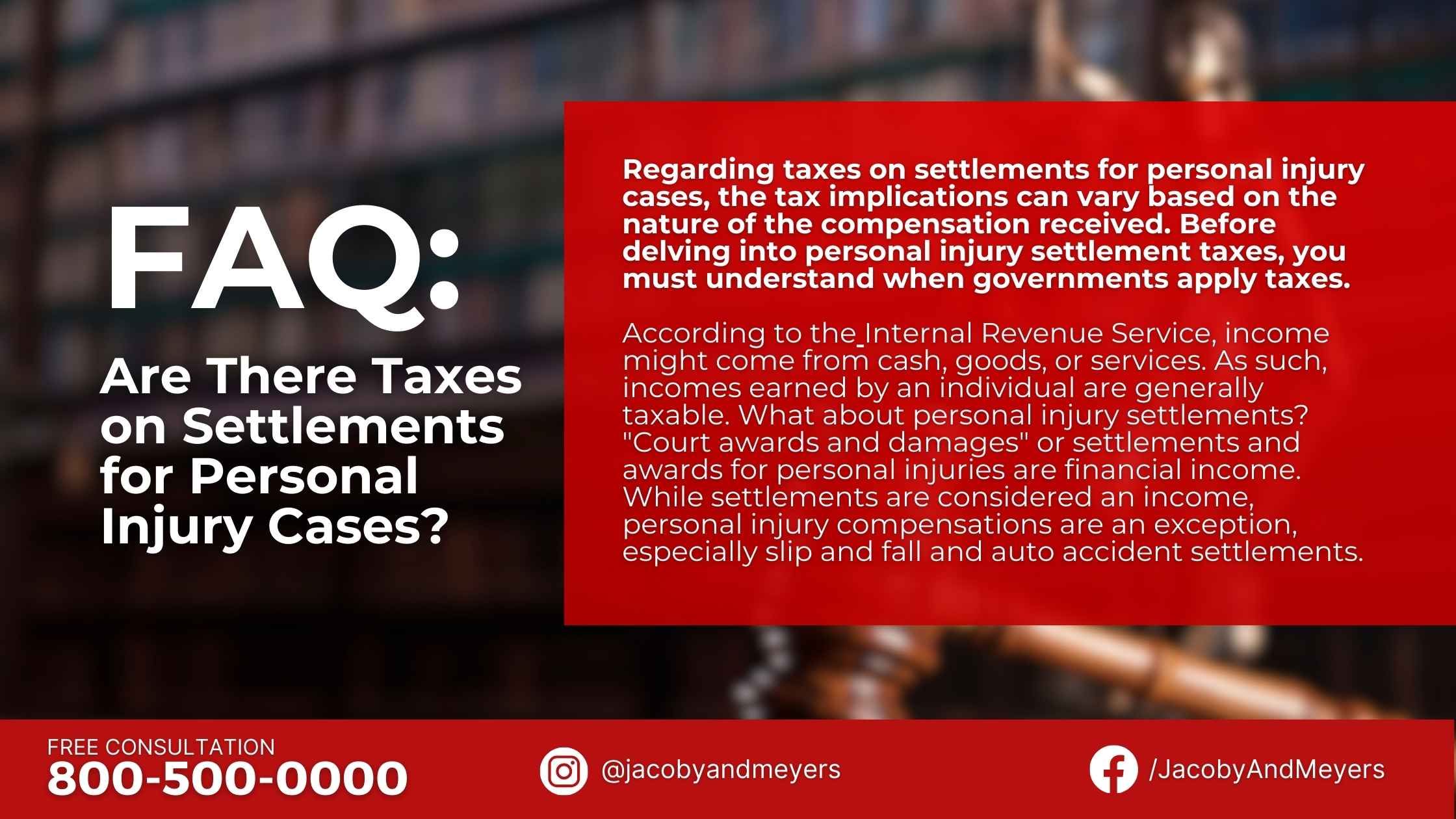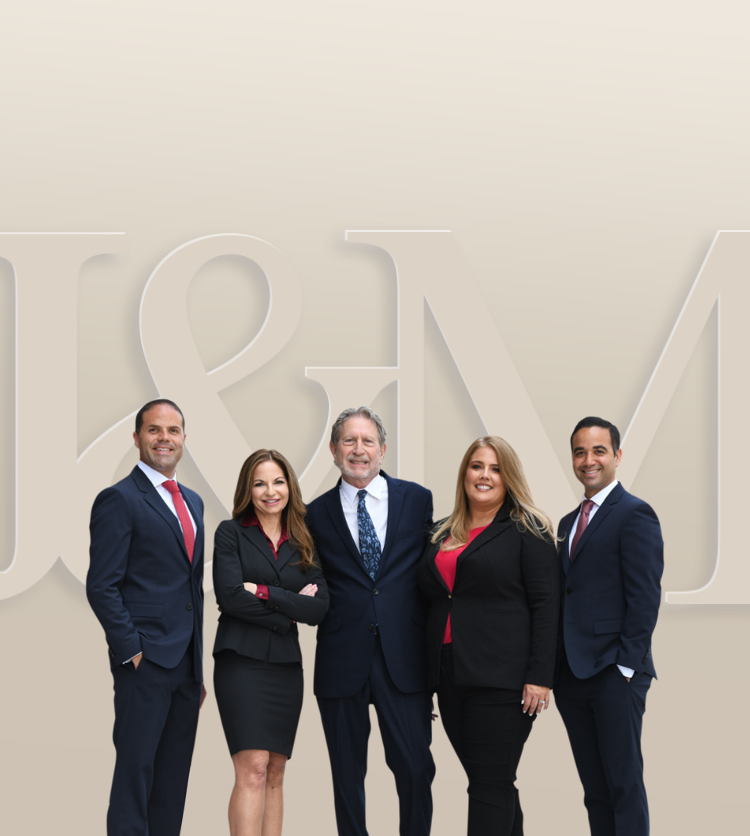When you’re awarded compensation, it’s crucial to grasp the various factors that can affect it, including potential tax obligations. While taxes on personal injury settlements are typically not applicable, there are specific circumstances, such as compensation for lost wages, where you might be liable for taxes. Understanding these nuances can help you make informed decisions and avoid potential financial pitfalls.
What Is a Personal Injury Settlement and How Does It Work?
Personal injury claims often arise when an individual seeks compensation for damages caused by someone else’s negligence. In an accident, if it results from another individual’s actions, you can file a personal injury claim against them. The primary goal of personal injury cases is to secure compensation to cover the financial losses and damages incurred due to the accident.
However, remember that you can only pursue these cases under the following circumstances:
- Another person caused the accident.
- There is evidence showing the other party’s responsibility for the accident.
- The accident resulted in various damages, including medical expenses, property damage, lost income, and emotional distress.
Your case may be dismissed if the court finds you responsible for the crash. This is why it is crucial to demonstrate an individual’s negligence. Negligence in a personal injury claim generally has four elements:
- The individual had a duty to ensure everyone’s safety.
- They neglected this duty.
- This breach of duty caused an accident.
- The accident led to injuries and other damages.
For example, if a distracted driver hits you and you suffer back injuries. You can say that the driver neglected their duty to follow traffic laws by committing a distracted driving violation. This violation then caused a collision and resulted in injuries. In this scenario, the driver’s negligence caused your accident, making them liable for the damages.
It is critical to clearly show that the accident resulted in injuries and other damages when establishing negligence in a personal injury claim. Without such evidence, you won’t have the right to file a personal injury claim.
When filing a personal injury claim, you can use the following evidence to prove your case:
- Accident photos
- CCTV or surveillance footage
- Police reports
- Witness testimonies
Lawyer’s Tip: Economic damages are easy to prove, as receipts and documents can justify them. However, non-economic losses are more challenging to prove. A car accident lawyer can help quantify them and determine the total damages to maximize your payout.

Are There Taxes on Settlements for Personal Injury Cases?
Regarding taxes on settlements for personal injury cases, the tax implications can vary based on the nature of the compensation received. Before delving into personal injury settlement taxes, you must understand when governments apply taxes.
According to the Internal Revenue Service, income might come from cash, goods, or services. As such, incomes earned by an individual are generally taxable. What about personal injury settlements? “Court awards and damages” or settlements and awards for personal injuries are financial income. While settlements are considered an income, personal injury compensations are an exception, especially slip and fall and auto accident settlements.
However, not all damages in a personal injury case are tax-free. You may still need to cover taxes in specific situations.
When Do Taxes on Settlements for Personal Injury Cases Apply?
The IRC Section 104(a)(2) states that damages from personal injuries are tax-exempt, except for punitive damages. This means the IRS will not take any portion of your compensatory awards.
Rest assured, the federal government does not tax your settlement money. These funds are designed to compensate you for the losses you’ve endured, both economic and non-economic. This means you don’t have taxable income from your settlement, as the government recognizes you’ve suffered a loss equivalent to the amount you were awarded.
It is crucial to remember, though, that emotional distress and pain and suffering are not only exclusively taxable in cases of physical impairment. This means that along with the pain and suffering or emotional distress, you have bodily injury.
For instance, a distracted driver hits you. You suffered severe leg injuries due to the crash, hindering you from doing simple tasks daily. As a result, you also experience pain and suffering. In this case, the compensation for the pain and suffering is non-taxable.
On the other hand, if you only sustained vehicle damage and experienced emotional distress from the collision, personal injury settlement taxes may be applicable.
When Is a Personal Injury Case Taxable?
Remember that non-economic damages are not taxed because they are intended to compensate for losses for which you cannot obtain direct compensation, such as pain you endure. However, you may need to pay taxes on a personal injury case if you only sustain non-economic damages from an accident without sustaining a physical injury.
It’s crucial to be aware of the circumstances when personal injury settlement taxes may apply. This knowledge empowers you to make informed decisions and be prepared for any potential tax obligations.
- Settlements for claims involving non-physical injuries, such as personal injuries without bodily harm, could not be eligible for the tax exemption typically granted to settlements involving physical injuries.
- Tax exemptions are often unavailable for punitive damages awarded in personal injury lawsuits, except for wrongful death. This is because punitive damages are meant to hold the defendant accountable for their actions rather than compensating the plaintiff for their losses.
- Since wages are income that would have been subject to taxation had they been received continuously, lost wages are regarded as taxable. In addition to income tax, social security, and Medicare taxes are also applicable to these wages.
- Interest earned on the settlement might be taxable. This interest can accumulate from the time of the injury until you receive the settlement. For example, interest accrued during the waiting period may be subject to taxation if you obtain compensation for a car accident that occurred years before you received the settlement.
Given the intricate nature of tax obligations on settlement money, it’s prudent to seek the expertise of the best personal injury lawyer in California. This ensures you fully understand your tax responsibilities and can make appropriate plans, alleviating any potential stress or confusion.
How to Reduce Taxes on a Settlement for Personal Injury
Most personal injury cases involve different damages, such as economic and non-economic losses. The parties should agree on the payment amounts and their tax treatment when settling a case.
For instance, a celebrity hits you. During the investigation, it was discovered that they were guilty of drunk driving. The at-fault driver then agrees to provide compensation for the damages if you can keep the issue confidential.
If your personal injury claim includes a confidentiality agreement, specify an amount for confidentiality and allocate the rest to physical injury compensation. Though the IRS and courts aren’t bound by these agreements, specifying your settlement allocation helps minimize your tax liability.
So, in the example above, you agreed on a $200,000 settlement, of which $50,000 is a payment for the confidentiality agreement. In this case, $150,000 is non-taxable, while the remaining has taxes.
How Can the Best Personal Injury Lawyer in California Help Me?
Handling a personal injury case can be overwhelming and challenging. Aside from your injuries, you must deal with the intricacies of your claim, such as the evidence to prove liability, the deadlines to meet, and the settlement process.
Fortunately, the best personal injury lawyer in California can help you build your claim while you focus on your recovery. They can help by doing the following:
- Analyze the details of your case.
- Collect evidence to support your claim.
- Avoid legal mistakes during case management.
- Negotiate with the at-fault driver’s insurance companies.
- Defend your rights in court if needed.
If you need the help of the best personal injury lawyer in California, Jacoby & Meyers provides some of the most skilled and dedicated accident attorneys, ensuring you get the justice you deserve. While many firms help with accident compensation, Jacoby & Meyers stands out for its unwavering commitment to protecting your rights, making it a preferred choice for accident victims.
Since 1972, Jacoby & Meyers has been a strong advocate for accident victims, securing significant settlements. Our impressive record, with over $2 billion in settlements, underscores our dedication to our clients.
Jacoby & Meyers is here to assist you if you’ve been injured in an accident. We offer free consultations for injury victims and work on a contingency fee basis.
Jacoby and Meyers. Because You Deserve Justice.
Hear From Our Past Clients
Instead of relying just on our guarantees, consider what satisfied clients say about our services.
“I contacted Jacoby & Meyers out of advertising on billboards in town and called.
The process was straightforward (it just took time and patience). I’m happy with the result and the work done for me.
I appreciate and definitely recommend this company for others. Thank you JACOBY & MEYERS.” – Sigal G.
Frequently Asked Questions
Do you have further questions regarding personal injury claims? We got you! Here are some frequently asked questions from injured victims that may help explain some aspects of your case.
- The Eggshell Plaintiff Rule: Impact of a Pre-Existing Injury in an Accident Claim
- Can I Still File a Claim If I Have an Unfavorable Police Report?
- How Does the Burden of Proof Work in Personal Injury Claims in California?
- How Do I Include Lost Wages in My Personal Injury Claim?
Works Cited
“Tax Implications of Settlements and Judgments | Internal Revenue Service.” IRS, 16 October 2023. Accessed 18 June 2024.
“26 USC 104: Compensation for injuries or sickness.” U.S. Code. Accessed 18 June 2024.
Call or text 888-522-6291 or complete a Free Case Evaluation form







